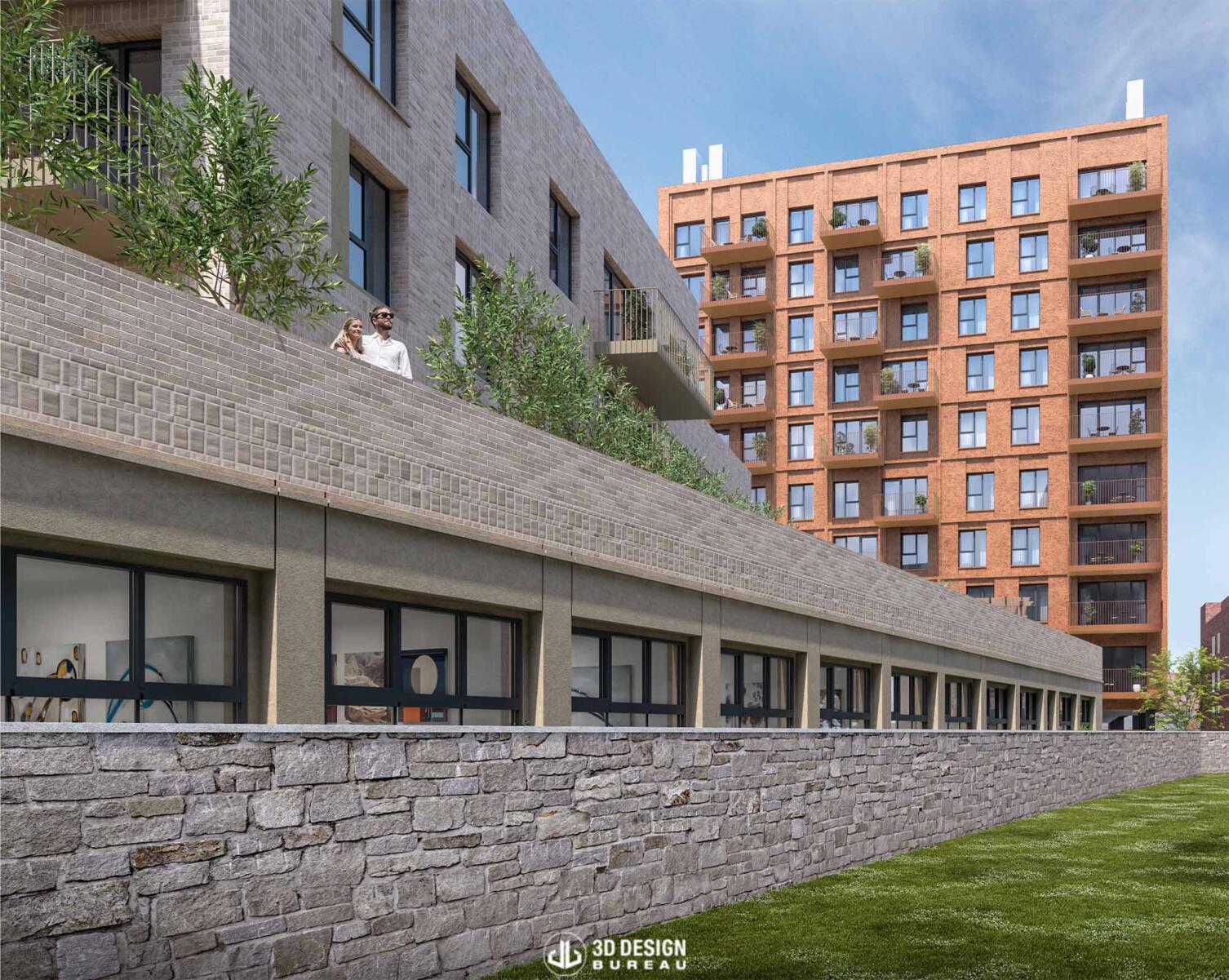The final stage of the planning application process is not necessarily the swiftest or simplest. Different outcomes can unfold, depending on the local authority’s view of the proposed scheme and how it has been presented. A successful outcome of the planning application process can boil down to the strength of the application made by the applicant and their design team.
In the most favourable case, the local authority greenlights the project, by granting permission, and no member of the public, or public bodies, lodge an appeal against the decision to An Bord Pleanála (ABP – soon to be renamed and restructured to An Coimisiún Pleanála). Whilst in the case of large-scale schemes a grant of permission without any conditions attached is somewhat rare, its occurrence signals a clear path for the project to move into the detailed design and construction phase.
Alternatively, local authorities may grant a scheme with conditions, which may be appealed by the applicants themselves. Authorities may also request additional/further information to make a final decision.
ℹ An Bord Pleanála (soon to be renamed and restructured to An Coimisiún Pleanála) is an independent statutory body at the national level that deals with planning appeals and directly reviews applications for strategic infrastructure and other developments. In Ireland, all planning appeals are made to this body. It should also be noted that during the period of Strategic Housing Development (SHD) applications, all planning applications were made directly to the board bypassing the local authority. This process has been discontinued since 2022 and the new vehicle for submitting residential schemes over 100 units is known as Large Scale Residential Developments (LRDs).
Planning appeals
A refusal of planning permission by the local authority will generally result in a redesign and resubmission of an updated scheme – which will consider the reasons for its original refusal – or in an appeal to ABP by the applicant. In this last case, An Bord Pleanála can uphold or overturn the decision.
Both the applicant (first party) and the public (third party) have a four-week timeframe to contest or appeal a decision to ABP. An inspector will then examine the appeal application and compile a report for the board of the statutory body.
It’s worth mentioning that all parties involved in the planning application, including the local authority, the applicant, and the public participants, will receive a copy of the appeal. An Bord Pleanála has a period of 18 weeks to make their decision to uphold or overturn the local authority’s decision.
Under the new Planning and Development Bill, which was passed by the Irish Government in early October 2023, timeframes will be expected to be strictly adhered to. This is one of the items foreseen in the major overhaul of the planning process in Ireland which has been floundering for a number of years.
Despite an applicant receiving planning approval for their scheme, and successfully navigating an appeals process, they may have one more hurdle to jump… A judicial review (JR).
Judicial reviews
Different from an appeal, a judicial review challenges the method by which a decision was arrived at by the local authority or An Bord Pleanála, escalating the case to the High Court. A judicial review can be lodged by any person or public entity within 12 weeks of a decision to grant or uphold a grant, has been made, provided they can demonstrate ‘substantial grounds’ for contesting it. In other words, a judicial review elevates the standards for questioning a decision. Ultimately, the outcome of the judicial review will either uphold the previous decision or declare it unlawful, resulting in it being quashed.
💡 Pro tip: To successfully navigate the complex process of obtaining planning permission, as outlined in this article, it’s imperative to collaborate with experienced professionals. A strong design and planning team can be the difference between a successful outcome and a refusal It is also imperative that all planning documentation, especially given the increasing volume in recent years, is carefully checked before submission to ensure the submission is validated by the local authority.
Timescale of planning decisions and appeals:
- Local authority decision: Up to 8 weeks from time of submission.
- Time frame for the local authority to request further information: Within 4 weeks of the submission.
- Time frame for public members or applicants to appeal a decision: Within 4 weeks of the decision being made.
- An Bord Pleanála review and decision: up to 18 weeks.
- Timeframe for any person or public entity to apply for a judicial review: Within 12 weeks of a decision being made.
- JR hearing and outcome: Up to 24 months.
Conclusion
As highlighted at the beginning of this article series, the planning application process in Ireland has become a focal point of intense debate in recent years. The complexity and multilayered nature of the system have undoubtedly impacted the construction and delivery of new developments.
In March 2023, the Construction Information Services (CIS) conducted a study, which showed that close to 18,000 units were under the appeal process, with decisions pending from An Bord Pleanála, while approximately 15,000 units were held up in judicial reviews.
Given this reality, it’s crucial for applicants to fully understand the framework of the planning process and all the various guidelines, steps and challenges it contains. This knowledge enables them to put together a solid planning application, an essential component in securing permission and mitigating the risk of public appeals or judicial reviews. By taking this comprehensive approach, and by working alongside trusted, experienced professionals, applicants can increase the chance of success for approval for their developments. This not only addresses the current housing challenges but also brings tangible benefits to local communities.

Read the full series!
- First stage: The importance of the feasibility studies
- Second stage: Design, pre-planning, and public consultation
- Third stage: Full planning application submission
- Fourth stage: The planning decision

Author:
Lucas Imbimbo
Digital Marketing Specialist
at 3D Design Bureau
lucas@3ddesighbureau.com